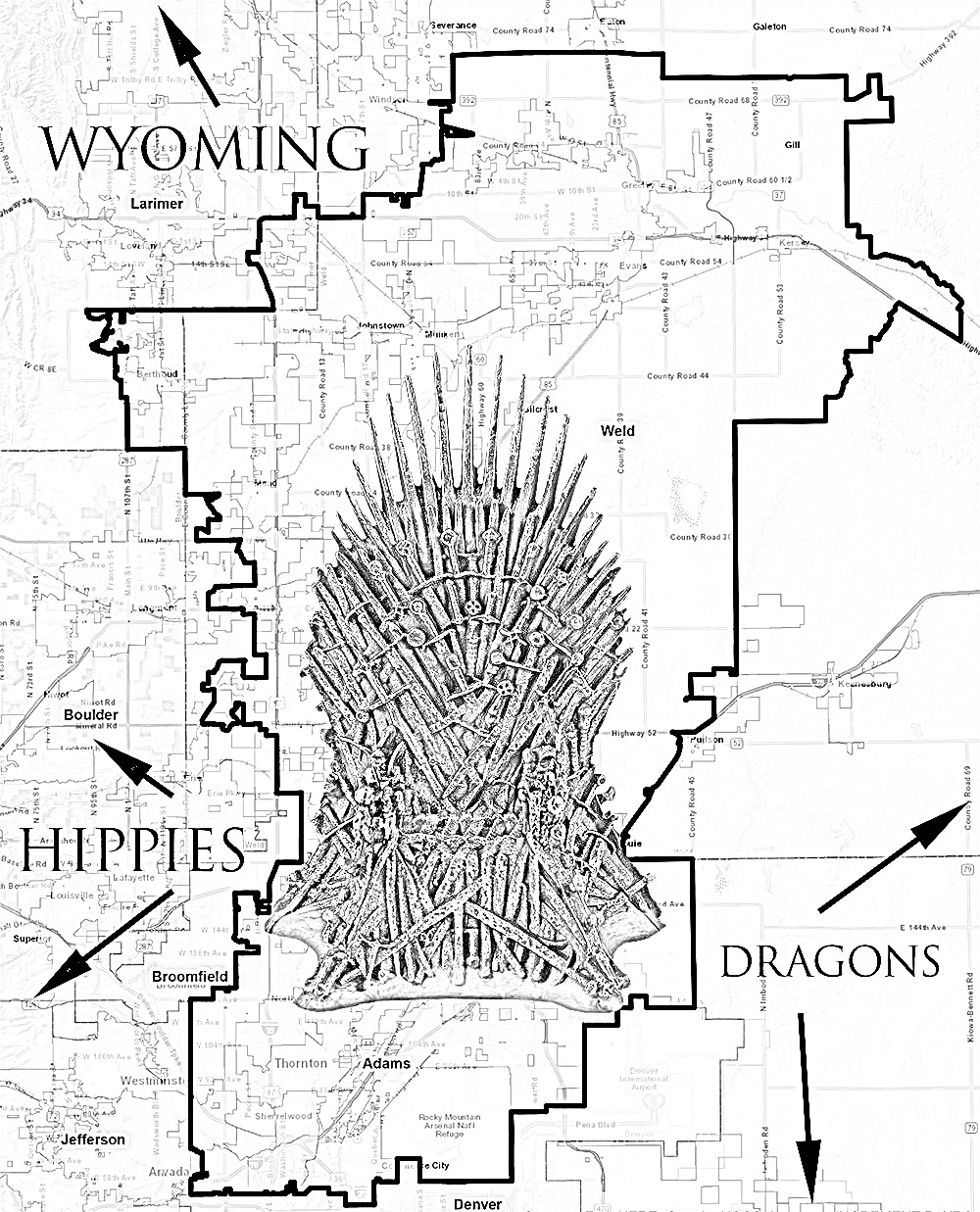
U.S. Senate
See Full Big Line
(D) J. Hickenlooper*
(R) Somebody
80%
20%

Governor
See Full Big Line
(D) Joe Neguse
(D) Phil Weiser
(D) Jena Griswold
60%
60%
40%↓

Att. General
See Full Big Line
(D) M. Dougherty
(D) Alexis King
(D) Brian Mason
40%
40%
30%

Sec. of State
See Full Big Line
(D) George Stern
(D) A. Gonzalez
(R) Sheri Davis
40%
40%
30%

State Treasurer
See Full Big Line
(D) Brianna Titone
(R) Kevin Grantham
(D) Jerry DiTullio
60%
30%
20%

CO-01 (Denver)
See Full Big Line
(D) Diana DeGette*
(R) Somebody
90%
2%

CO-02 (Boulder-ish)
See Full Big Line
(D) Joe Neguse*
(R) Somebody
90%
2%

CO-03 (West & Southern CO)
See Full Big Line
(R) Jeff Hurd*
(D) Somebody
80%
40%

CO-04 (Northeast-ish Colorado)
See Full Big Line
(R) Lauren Boebert*
(D) Somebody
90%
10%

CO-05 (Colorado Springs)
See Full Big Line
(R) Jeff Crank*
(D) Somebody
80%
20%

CO-06 (Aurora)
See Full Big Line
(D) Jason Crow*
(R) Somebody
90%
10%

CO-07 (Jefferson County)
See Full Big Line
(D) B. Pettersen*
(R) Somebody
90%
10%

CO-08 (Northern Colo.)
See Full Big Line
(R) Gabe Evans*
(D) Yadira Caraveo
(D) Joe Salazar
50%
40%
40%

State Senate Majority
See Full Big Line
DEMOCRATS
REPUBLICANS
80%
20%

State House Majority
See Full Big Line
DEMOCRATS
REPUBLICANS
95%
5%
 December 27, 2021 11:19 AM UTC
December 27, 2021 11:19 AM UTC 5 Comments
5 Comments
Caraveo would be who I’d advise my daughter’s family, who live in Thornton, to vote for. Unless one is a 19 year old with a yen to consume copious amounts of concentrated cannabis, she’d be a good advocate for health of the people in that district. If the cannabis industry endorses her opponent instead, will it be a “kiss o’ death”? Don’t know.
I’d really want to see which candidate makes the best case for a plan to clean up the pollution in CD8. It’s home to methane and heavy metal and airborne carcinogens, hundreds of dead O&G wellheads, and decades of waste in the water. It’s a textbook example of the need for “environmental justice”. Derby and Thornton in CD8, for example, have terrible air quality and poverty.
We already know the Republican candidates won’t focus on environmental issues, and will recite the “jobs jobs jobs” mantra to shore up O&G interests.
Hopefully, Democrats will do better at making the case for “jobs with justice”.
Expecting a freshman Representative to be able to do ANYTHING is a reach. Democrat or Republican, "outsider" or "insider" to Congressional processes and personalities, ideologue or pragmatic dealmaker — chances that a newly elected Rep will exploit their 1/435th influence to make programs or priorities is a reach.
Clean up is much more likely to come from county commissioners, state government, or federal executive branch regulation.
“Makes the best case for a plan to clean up the pollution in CD8” is hardly proclaiming that the CD8 rep will be able to create environmental policy by themselves. You know perfectly well that I wasn’t implying that.
However, that representative will have a megaphone, a bully pulpit, the opportunity to persuade like-minded colleagues, and a large contact list. Buck, Lamborn, and Boebert ( a freshman) have consistently used these resources to advocate against environmental regulation. They have consistently promoted the false narrative that only fossil fuels and unregulated industries create jobs.
Colorado’s Democratic delegation, on the other hand, have used their public voices ( and votes) to argue for climate mitigation and renewable energy.
Elections do matter.
Seems extraordinarily unlikely. HB21-1317 greatly favors the corporate cannabis industry, so I can't imagine them having qualms with her.
Local cannabis businesses and medical cannabis providers, however, have voiced support for Chaz Tedesco. Granted, they see problems in Caraveo's bill already.
So, "Kiss of death" for the Democrat pushing reactionary social policy? The one receiving dark money from hospitals/insurers? Doubtful.
I haven't actually seen a demographic analysis of CD-08, but it was supposedly an effort to make sure that the growth in Colorado's hispanic population is represented. "Hispanic" can mean lots of things from Cuban to Salvadoran, but in Colorado it would mean primarily of Mexican descent, if not Chihuahua.
But, I don't think this district is so easily categorized like that.
The growth in CD-08 has been primarily suburban or ex-urban Denver commuters: new developments for families who are willing to drive until they can afford a modern, middle-class 4-bedroom home. I'm guessing a lot of second generation immigrants, perhaps first college generation or good working class jobs. I also assume the age skews to younger (30s/40s people with families.
I don't really know, but I think that assumptions about voting patterns should not rely on ethnic allegiances or cultural/racial issues (i.e. "hispanic"); I think the common interests will be along economic lines and opportunities.